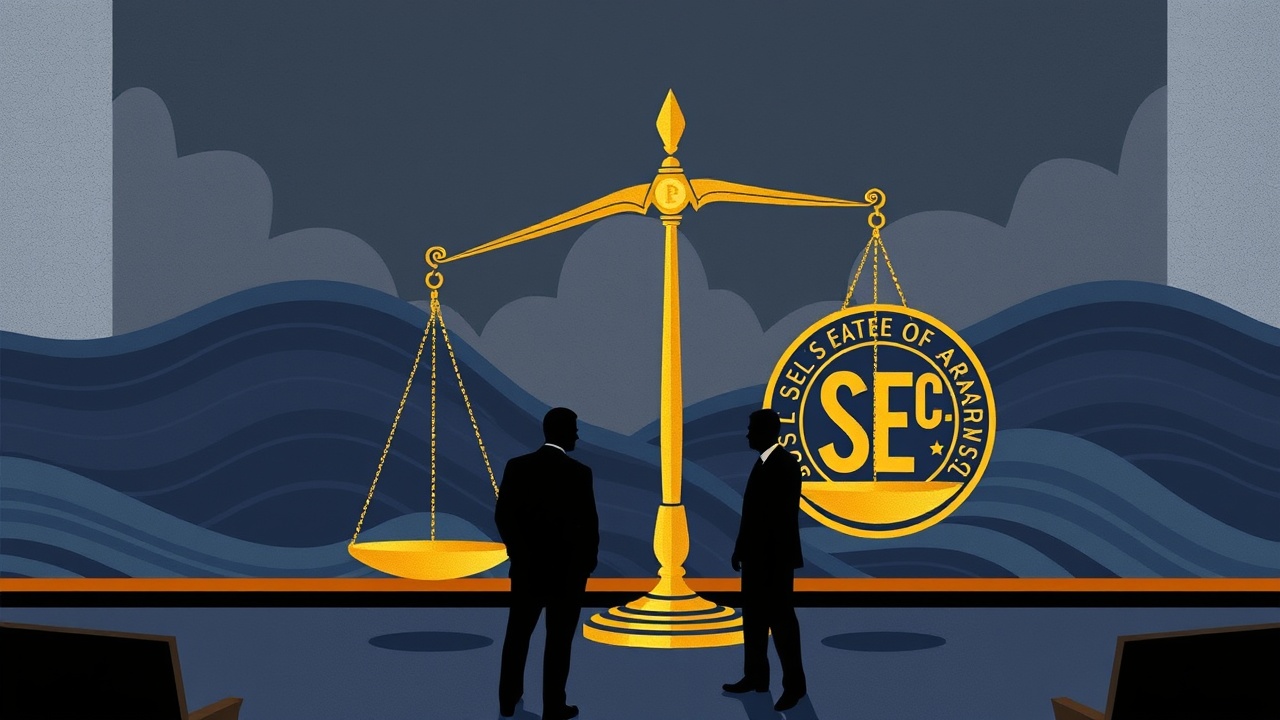Ripple Labs vs. SEC: A Legal Overview
The long-standing legal dispute between Ripple Labs and the U.S. Securities and Exchange Commission (SEC) has significantly impacted the landscape of cryptocurrency regulation. Beginning in December 2020, the SEC accused Ripple, along with its CEO Brad Garlinghouse and co-founder Chris Larsen, of illegally conducting a $1.3 billion securities offering involving its digital currency, XRP. The core of the SEC’s argument rested on the classification of XRP as an unregistered security, a label that could have profound implications for similar digital assets.
Settlement and Implications
As of August 2024, this legal saga has concluded, with Ripple agreeing to a settlement that includes a $125 million fine, yet it was not found liable for offering XRP as a security in its public transactions. This outcome is seen as a pivotal moment not only for Ripple but also for the broader cryptocurrency industry, providing critical precedents regarding how digital currencies are treated under U.S. law. The case has raised questions about regulatory clarity and the future of asset classification in the crypto sphere.
Key Legal Developments
Over the course of the litigation, which spanned over three years, the case witnessed numerous rulings, arguments, and legal complexities. A significant decision came in July 2023 when Judge Analisa Torres ruled that XRP sales to institutional investors could indeed fall under securities regulations. However, sales transacted on digital asset exchanges were not classified as such. This distinction is vital as it delineates the regulatory boundaries for how various types of crypto transactions may be treated legally.
Ripple’s Defense and Regulatory Challenges
Ripple maintained that XRP functions primarily as a digital currency, akin to Bitcoin or Ethereum, used for fast and cost-effective cross-border payments. The company’s defense hinged on the argument that XRP should not be viewed as a security, emphasizing that XRP buyers had no expectations of profit tied to the company’s performance. Instead, they positioned XRP as a utility for transactions rather than an investment vehicle.
The SEC’s approach has faced criticism from Ripple, which highlighted the absence of clear regulatory guidance on digital asset classifications. There was a strong sentiment from Ripple’s representatives that the lack of explicit rules had put companies in a “regulatory gray zone,” where compliance was ambiguous and uncertain.
Future of Cryptocurrency Regulation
Subsequent to the court’s final decisions, Ripple faced penalties and constraints designed to prevent future violations of securities laws, integrating both punitive measures and compliance directives into the resolution.
The Ripple case opened the door for more structured regulatory frameworks for cryptocurrencies in the U.S., fundamentally altering how other digital asset firms navigate the legal landscape. Reactions across the industry reflect a renewed urgency for compliance as firms adapt to the heightened scrutiny from regulators, adjusting their operational practices to mitigate legal risks in light of the Ripple precedent.
Conclusion
This landmark case has set the stage for ongoing discussions about cryptocurrency regulations, calling for lawmakers to establish clearer guidelines that differentiate between digital commodities and securities. Furthermore, as Ripple’s situation illustrates, the outcome may influence how other companies approach token sales and operational strategies in the evolving market.
In conclusion, the Ripple SEC lawsuit has become pivotal in shaping the future of regulatory actions in the crypto space, directing regulatory bodies like the SEC and entities such as Coinbase and Binance to reevaluate their frameworks for ensuring compliance with securities laws, thereby influencing the trajectory of cryptocurrency innovation and investment moving forward.




